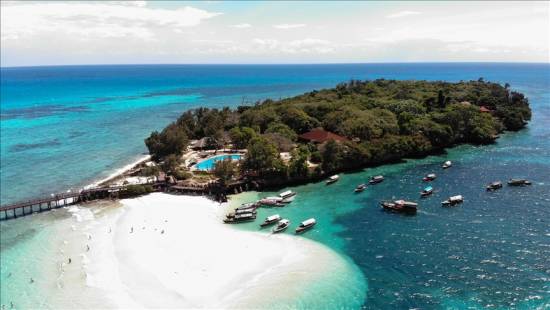There is a coordinated approach to lead post-coronavirus recovery among countries in the East Africa Community (EAC) bloc as the tourism industry continues to struggle, according to observers.
The tourism sector contributes 10% to the GDP of partner states, 17% of export earnings and 7% in terms of jobs.
International tourist arrivals to the region steadily increased in the years leading up to the pre-pandemic period at varying rates, with total annual arrivals of about 6.98 million in 2019, according to official data.
It was projected that arrivals would increase to 14.05 million in 2025, before being altered by the pandemic.
It is estimated that arrivals dropped 67.7% in 2020, compared to 2019.
In absolute terms, the EAC received 2.25 million international tourists in 2020, compared to 6.98 million in 2019.
The region lost more than $4.8 billion and 2 million jobs in the sector in 2020 amid COVID-19 curbs, according to the East African Business Council, a bloc of private business professionals in the region.
Still riddled with uncertainty, data for 2021 indicates that arrivals in the first quarter were 65% less than in 2019 and for the second quarter, the drop, in comparison to the same period in 2019, could be 70%.
Recovery plan
It is against that background, the East African Community Sectoral Council on Tourism and Wildlife approved a regional COVID-19 recovery plan for tourism in a bid to revive the sector.
One way to do it would be to ensure that the six members of the EAC -- Kenya, Uganda, Rwanda, Tanzania, Burundi and South Sudan adopt a collective and coordinated approach to tourism recovery.
It entails developing a regional strategy to promote tourism whereby individual efforts are reinforced by regional action, according to Christophe Bazivamo, EAC Deputy Secretary General Productive and Social Sectors.
“Whereas Partner States have initiated tourism recovery efforts, it was deemed necessary to come up with a Regional Tourism Recovery Plan because tourism is one of the areas identified by the EAC Treaty for cooperation by the EAC Partner States, whereby they undertake to develop a collective and coordinated approach to the promotion and marketing of quality tourism within the Community,” Bazivamo told Anadolu Agency.
Experts, however, said without investment and political will, the plan could be hobbled.
Roughly $57.8 million is needed to implement the plan.
Sticking to plan
In an interview with Anadolu Agency, Carmen Nibigira, a Kigali-based tourism analyst said if the sector is a priority, countries need to commit to the plan and stick to it.
“If what is written in that plan is to focus more on collaboration, domestic and regional tourism let this be applied in their strategy,” she said. “If as a region we really want to fast track and put tourism at the heart, there are external factors which we can’t change, but there has to be political will to support policy.”
Uneven coronavirus guidelines
Analysts underlined that a fast rebound hinges on rapid vaccination, easing travel restrictions, investment in digital technology and cheaper PCR tests.
Nibigira noted that vaccination is progressing unevenly in the region, which could present a challenge to post-coronavirus recovery efforts.
“How we contain the COVID is not at the same pace, even uneven vaccination progress is an issue. Tanzania has just started its vaccination campaign which may take some time, Burundi is still behind,” she said.
But Bazivamo said EAC states are making strides to harmonize COVID-19 guidelines that will help ease travel restrictions within the region.
Nibigira also bemoaned the fact that countries have been over-reliant on the international tourism market.
The majority of tourists to East Africa originate from Europe, the US and Asia.
The main objective in the recovery plan is to promote the region as a single destination with tourists being encouraged to travel across EAC states, said Bazivamo.
With the decline in international travel, it is envisaged that intra-regional tourism will play a major role in jumpstarting tourism.
Kenya, Uganda and Rwanda market tourism in their countries as a one tourist destination but Tanzania, Burundi and South Sudan have yet to join that campaign.
Nibigira thinks it is a critical time to bring all EAC states on board as the industry struggles to recover./agencies


